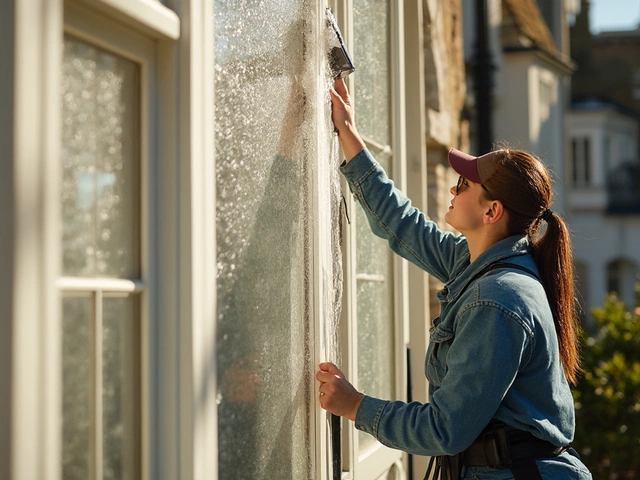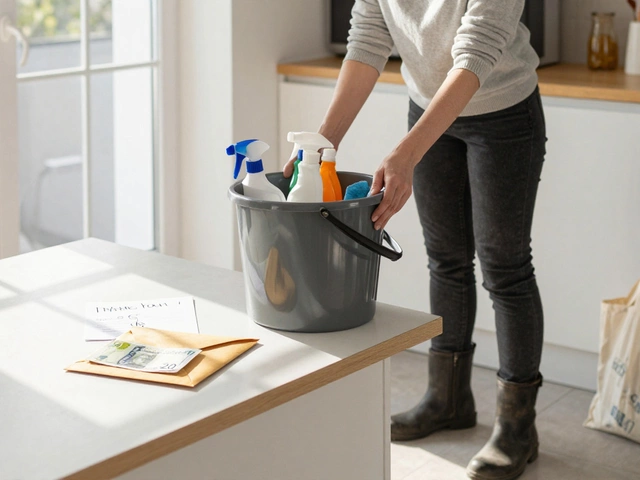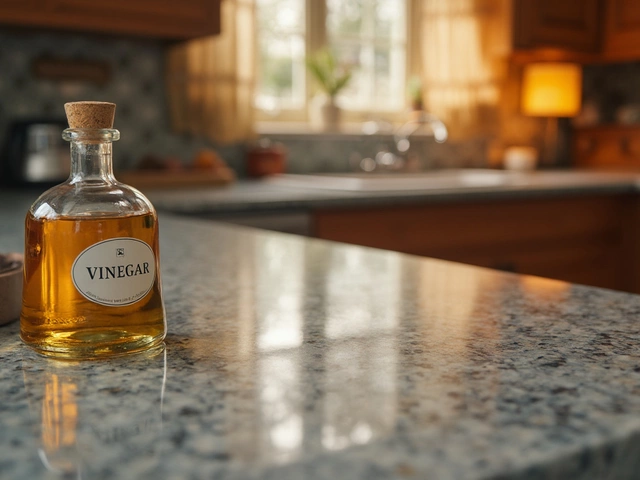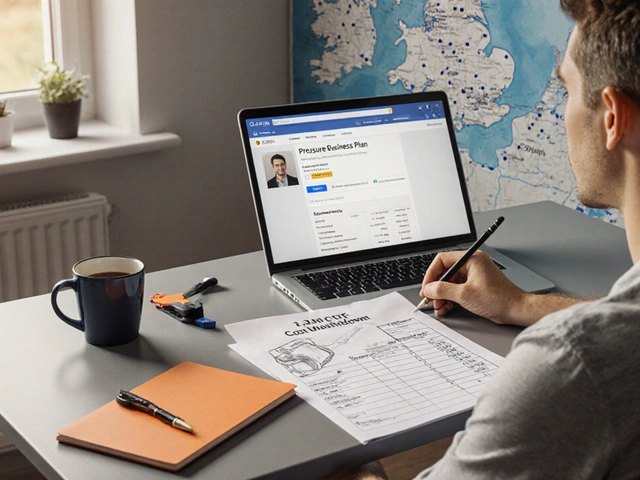They say pressure washing is just blasting dirt off driveways, but anyone who’s actually done it knows there’s way more to it. Before you pour cash into pro-grade washers and a stockpile of chemicals, hit pause. There’s a wild difference between cleaning your uncle’s back porch for twenty bucks and building a pressure washing business that actually pays your mortgage. You’ll see franchise ads promising overnight riches—don’t buy it. This world has tiny profit margins, strict safety rules, hidden costs, and a ton of logistical headaches. Here’s everything people wish they knew on day one but had to learn the hard way.
What’s Really Involved: Workload, Expectations, and Lifestyle
If you picture a pressure washing business as easy money—just power up, spray down, and go home—you’re in for a shock. This isn’t set it and forget it work. On most days, you’ll haul heavy hoses, troubleshoot machines that love to jam, manage soggy shoes, and battle unpredictable weather. Rain delays? Expect them. Early mornings and late evenings? Count on them, especially when serving commercial clients before their customers arrive or after hours. If you’ve never run a manual labor business, be prepared for a physically demanding grind.
Client expectations can be sky-high. Residential customers may want algae and fifteen years’ worth of grime gone instantly, and if something isn’t perfect, be ready for a complaint. Commercial clients expect professional results with zero risk to their property. Some stains, like deep oil spots or rust, barely budge even with strong commercial chemicals, so you’ll need to set realistic outcome expectations—both for your sanity and your clients’ peace of mind.
This is not nine-to-five stability, either. Spring and summer bring a flood of business, but late fall or winter can be dead if you live in a cold climate. You’ll need to build a cushion or swing into another off-season hustle—some owners add snow removal, holiday light installs, or even gutter cleaning to bring in cash year-round.
Startup Costs, Equipment, and Must-Have Gear
If you dig into forums or Reddit threads, most first-timers underestimate their startup spend by at least 25%. Low-end, you can get rolling with a $300-400 gas pressure washer and a couple hundred bucks in hoses and tips—but it won’t last, and you’ll constantly fix breakdowns. Serious outfits usually spend $1,500–$5,000 up front, and bigger rigs (trailer setups, water tanks, commercial engines) can set you back $10,000 or more. Go cheap, expect headaches.
Here’s a breakdown of what you actually need:
- Pressure washer (at least 3,000 PSI, 4 GPM for pro work)
- Surface cleaner (for efficient driveway/large flat work)
- Hoses, wands, nozzles (at least two sets, so you’re not dead in the water if one breaks)
- Extension wands (for two-story houses, gutters, rooftops)
- Chemicals: bleach (sodium hypochlorite), surfactants, degreasers (store safely, label everything)
- Personal protective equipment: gloves, goggles, boots (pressure water injuries are no joke)
Some go bigger with a water tank (100+ gallons), so you’re not at the mercy of a client’s hose, especially for commercial parking lots or rural jobs. Insurance is another must—liability policies can run $500–$2,000 annually, but one slip-up can bankrupt you. You’ll also need to register your business, check licensing with your local regulatory agency, and make sure your chemicals won’t violate environmental rules. In certain areas, improper use of chemicals comes with heavy fines—and some neighborhoods just ban bleach outright.
Here’s how those costs break down in a real-world scenario:
| Item | Typical Cost (USD) |
|---|---|
| Commercial Pressure Washer | 1,200–2,500 |
| Surface Cleaner | 300–800 |
| Hoses, Wands, Nozzles | 200–600 |
| Chemicals & PPE | 150–400 |
| Business Liability Insurance | 500–2,000 (per year) |
| Business Registration, Permits | 50–500 |
Plan your investment carefully, because cutting corners early usually costs you even more down the line.

Pricing Jobs and Spotting Hidden Expenses
Lots of new owners price their jobs way too low, anxious to win business, and then freak out when they barely break even. Don’t base your rates on a quick Google search or by copying the local low-bidder. Instead, price for profit, not just a sale. Calculate your actual operating costs—fuel, maintenance, chemicals, insurance—as well as your time. For reference, HomeAdvisor reports the average cost for professionally cleaning a driveway in the US ranges from $100–$250, with heavy stains and larger areas driving up the price. Houses can go from $200 for a simple ranch to over $1,000 for multi-story properties or complex surfaces.
Let’s talk about the shockers: travel time, setup and breakdown, dump fees (for wastewater), and wear and tear on your truck or trailer. These don’t show up in the first few jobs but, by the end of your first year, can eat a fat chunk out of your profits. Always charge for jobs based on square footage or linear feet, not just “a quick spray.” You’ll want to offer bundled rates—like house plus driveway—since most people want several things cleaned at once.
Keep an eye on surprise costs. Gas for your washer isn’t cheap, and chemical prices can go up overnight. Some jurisdictions require wastewater containment so you don’t pollute storm drains—if you ignore this, expect fines, or worse, a client with a viral camera clip. That’s why the EPA told contractors in a 2023 bulletin:
“Operators who do not properly manage power washing runoff are liable for all penalties under the Clean Water Act.”
Software helps. There are apps like Jobber or Housecall Pro that let you track expenses, schedule jobs, and send out estimates. A lot of pros swear by them because they expose the real profit per job after the chaos of the week is over.
Getting Customers and Scaling Fast (Without Getting Burned)
You’ve seen the yard signs on street corners and ads pasted to telephone poles. Classic. But in 2025, word-of-mouth, Facebook groups, Google My Business, and online reviews drive most pressure washing business. Happy customer reviews on Google or Nextdoor are gold—set up your business profile, and ask for reviews after every job. People trust recommendations from real neighbors more than any fancy website.
Door-to-door flyers still work in some neighborhoods—especially right after a warm spell turns winter grime into a visible embarrassment. Some pressure washers offer a discount to the first house on the block, then upsell nearby homes when they see the instant face-lift. Bundle deals (like house+driveway+deck specials) give you more work per stop, which cuts down on travel expenses and downtime. If you work with property managers or realtors, you can snag repeat business prepping homes for sale or rental turnovers.
Just don’t scale too fast. The temptation is real: you land a commercial client, buy another rig, and double your workload in a month. That’s also how people burn out or wind up in debt. Most seasoned owners recommend holding steady until you can confirm consistent demand for 4–6 months in a row, and only then add crews or trucks. This keeps you from blowing up your image with unreliable service, which tanks local trust.
One pro tip: show up in a clean uniform with a branded shirt (even if it’s just a custom tee), and wrap your truck with your logo. You want passersby to think, “That’s legit,” not “Some guy borrowed his cousin’s washer.”

Legit Safety, Insurance, and Legal Basics You Can’t Skip
The last thing anyone wants is a hospital visit because you got careless. Pressure washers push out 2,000–4,000 PSI—more than enough to slice skin, break glass, or blast a hole in siding. One study from the American Journal of Emergency Medicine found that pressure washing accidents double in the summer and send thousands to the ER each year. You need to train yourself, and anyone you hire, to stay sharp around moving parts and fast-moving water. Always test pressure on a small spot to avoid accidental damage to delicate surfaces.
Insurance is a non-negotiable. Even one slip—like stripping paint off a customer’s house, flooding an attic, or someone tripping over your hoses—can trigger a huge claim. A reputable insurance agent who specializes in contractor coverage is worth every penny for peace of mind. Many big realty companies or property managers will specifically ask for your proof of insurance before handing over any contracts.
Environmental rules are more strict than ever. Many states and cities require documentation of your chemical use and wastewater handling process. Skip this, and the fines will sting—as will the backlash if you’re caught dumping waste into storm drains. Always check with your city’s environmental services before advertising, "We Clean Everything!" Some counties demand pressure washers to hold a specific license or certification that covers safe chemical handling. Training through organizations like Power Washers of North America (PWNA) can help you pick up both the skills and a credibility boost when customers compare businesses.
Finally, contracts save headaches. Put details in writing—exact surfaces, stains, scope of work, and payment schedule. It’s not just to protect you; clients want to know what they’re getting. If something goes wrong, skip the guessing games—point back to the contract.
If you walk away with one thing, know that starting a pressure washing business is way more than just cranking an engine and pulling a trigger. The real pros made mistakes, so you don’t have to. Learn from them, start smart, and you’ll be spraying profit, not just puddles.




